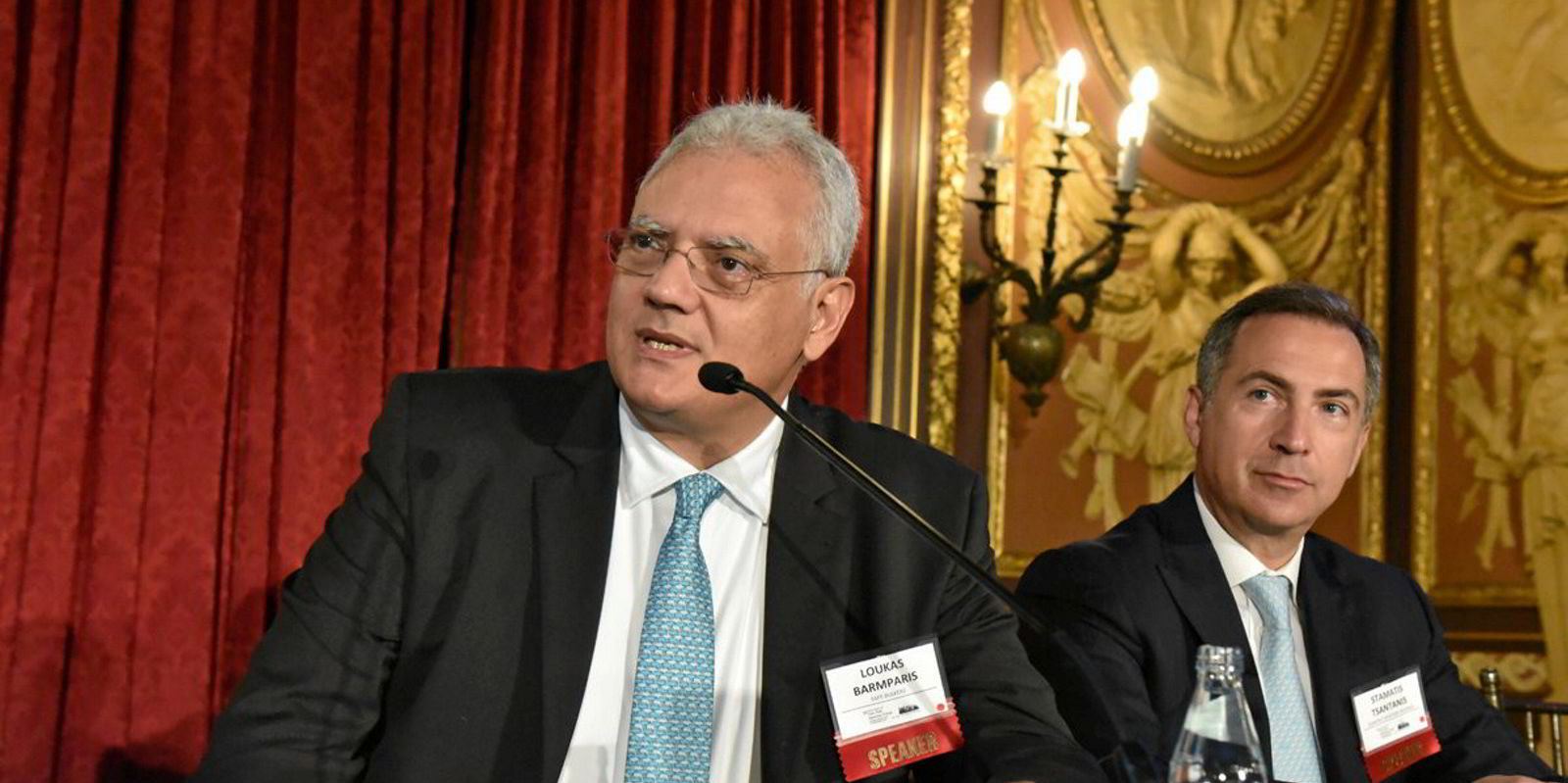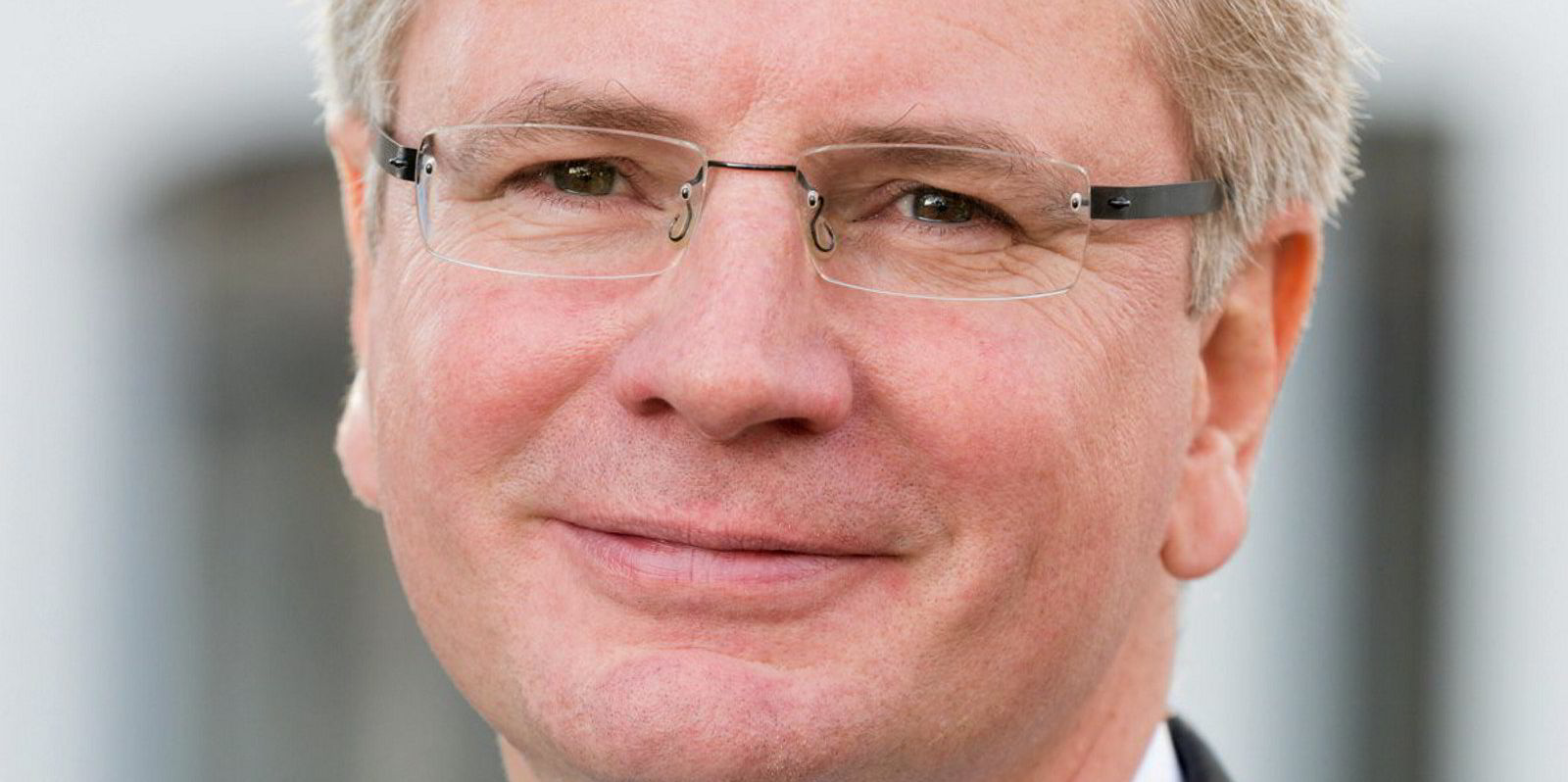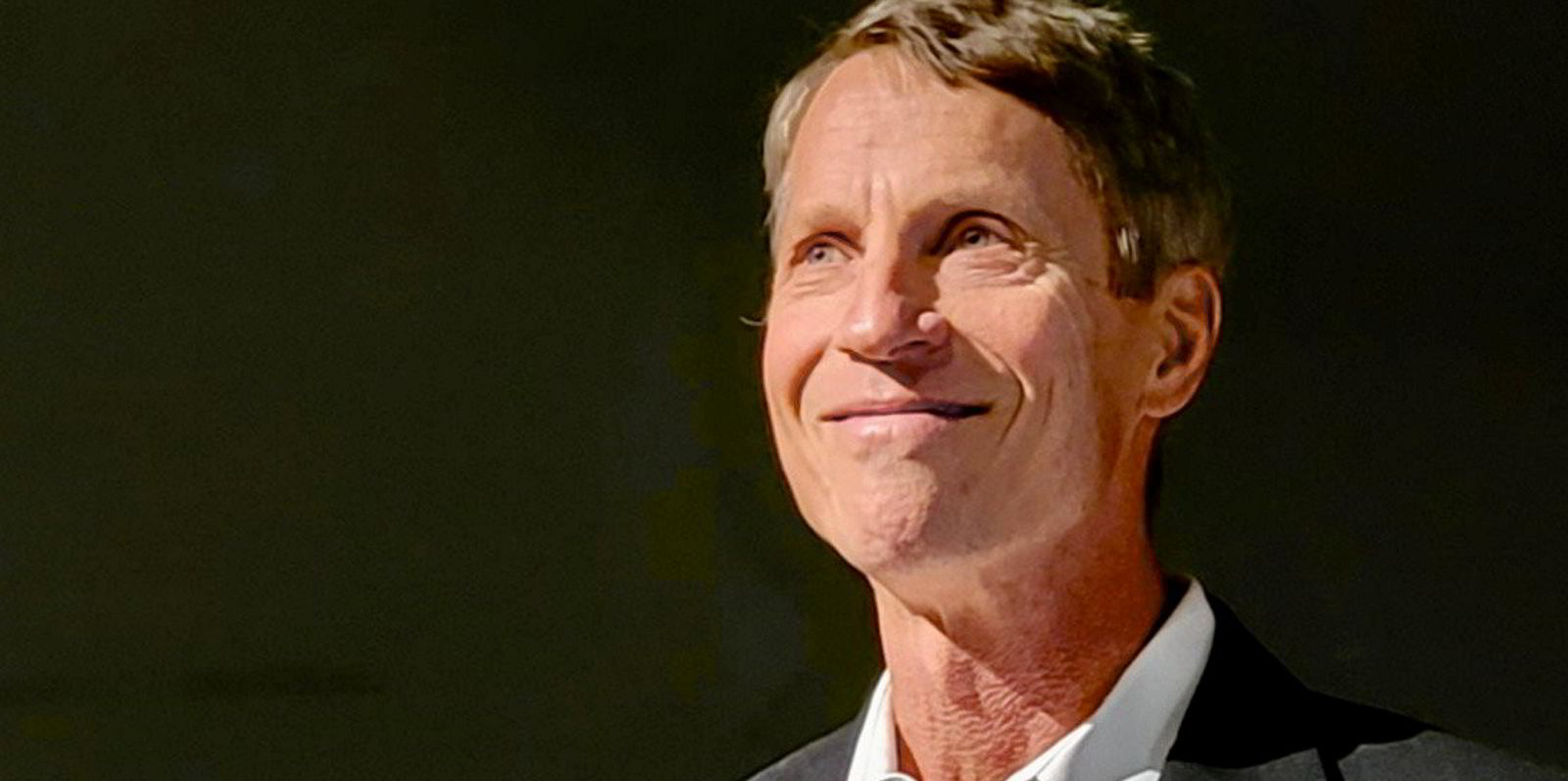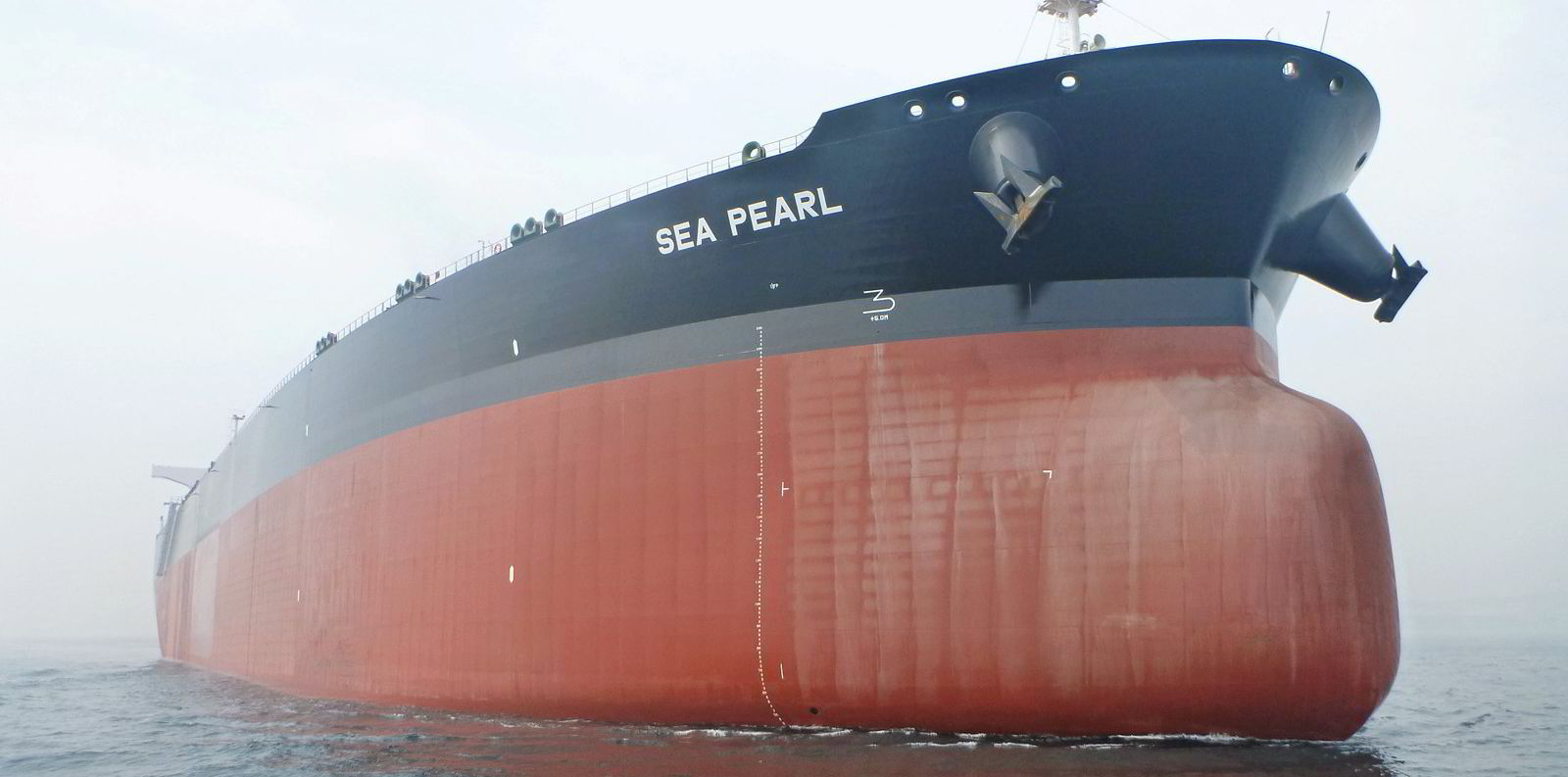Reinhard Luken has launched a stout defence of a shipbuilding sector accused of being too passive on shipping decarbonisation.
The managing director of the German Shipbuilding and Ocean Industries Association told a TradeWinds webinar that 20 years or burning through cash has left many shipyards playing catch-up with the zero-emissions agenda.
Global output in shipbuilding has gone down 40% since the pandemic hit, he explained.
"And shipbuilding production is not that flexible. It's really a very, very painful process to cut 40%," Luken added.
Price levels have been below building costs for years and years, the managing director added.
Criticism justified?
"If I hear now criticism that the yards have not developed enough new designs — and that's true — it has a reason. It's been a highly cash-burning sector over the last 20 years," he added.
With cruiseships, European yards found a sector willing to invest in innovative new solutions, but this has all changed as fleets were idled in the pandemic and existing vessels became surplus to requirements.
"Europe has banked on the success of growth markets, but we have also blinded ourselves a little, being 80% dependent on cruiseships," Luken said.
"No other sector has been burning as much cash as cruiseships."
The question of the yards' role in decarbonisation hit the headlines on Monday when Haralambos "Harry" Fafalios, chairman of the Greek Shipping Cooperation Committee, said there had been a deafening silence from ship and engine manufacturers on alternative fuels.
Loukas Barmparis, president of Safe Bulkers, backed his compatriot.
"Most of the yards have not yet produced designs for [Energy Efficiency Design Index] Phase 2 ships," he told the webinar.
Yards should be pressed
"They should be pressed to deliver new designs. We have not any reliable alternative fuels. Yards should spend more attention and effort on Phase 3 designs that will help owners to do gradual renewals in the following years."
John McDonald, senior vice president at classification society ABS, said yards are ready to cope with a potential surge in ordering to meet IMO emissions-reduction targets, however.
He added: "That demand is coming and it's the ageing fleet that is driving that demand. So much research is going on to address these changes."
McDonald said ABS is working closely with yards to ensure there are solutions to shipping's needs.

For Stena Bulk chief executive Erik Hanell, collaboration is key.
"The pathways are many to 2050, but a lot of work still needs to be done with the new technologies," he said.
"You need partners and competitors to work with. It is too costly to do it by yourself."
Who jumps first?
Hanell explained that owners are reluctant to the make the first move if the fuelling infrastructure is not in place.
"You need cooperation and long term commitments to drive the technology," he added.
"If you order spot, that will not be an accelerator for shipbuilding for the years to come."
McDonald believes zero-emissions ships are four to five years away, with yards and equipment manufacturers vital in reaching the target.
Luken added he doubted there would be a green order boom.
"There is so much uncertainty on fuel choice, and on geostrategic developments. We need to sit down with owners to discuss what's needed, we need to work together," he added.






